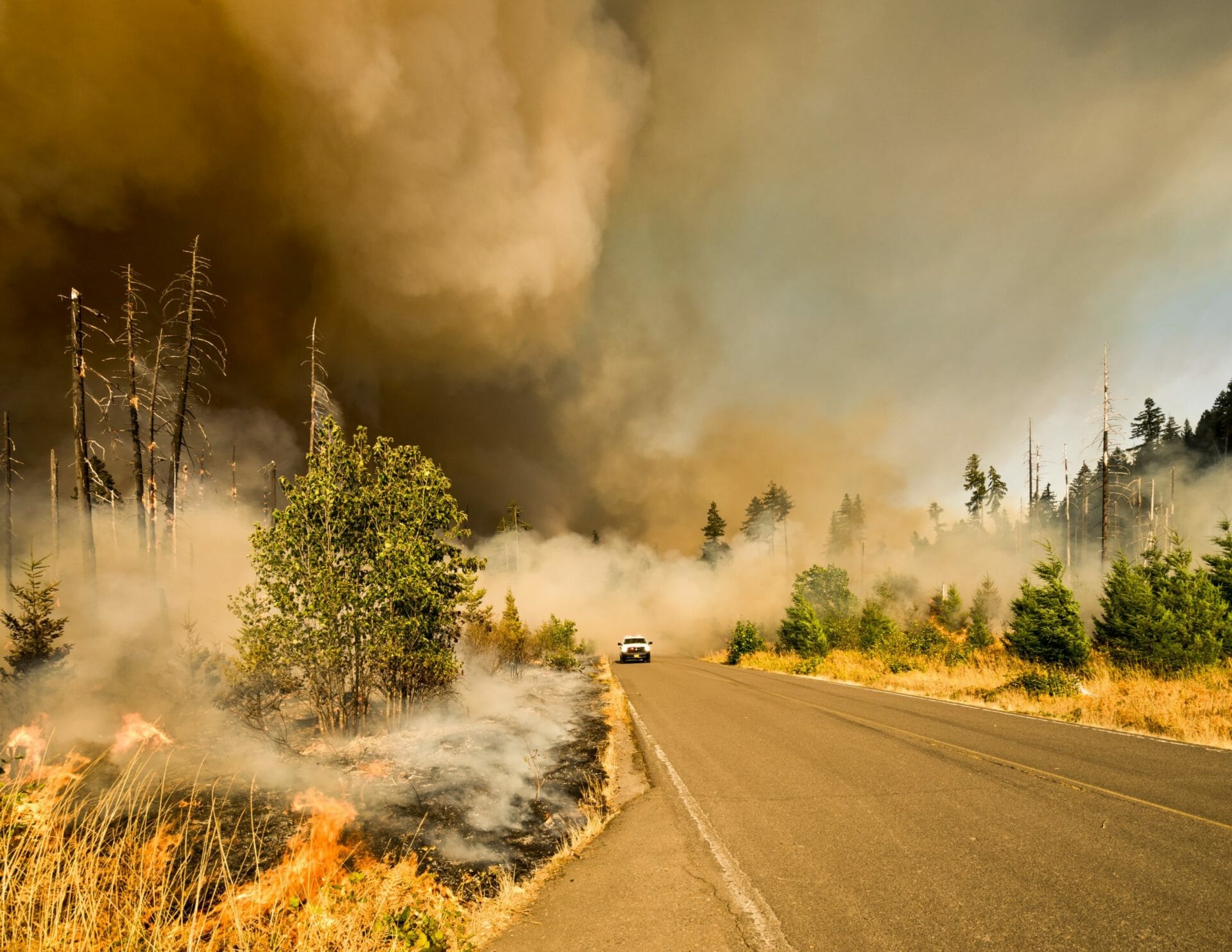Furious wildfires are destroying large swathes of California, Oregon, and other parts of the western United States. Dozens of people have died and thousands have been forced from their homes.
The US National Interagency Fire Center has reported that firefighters are battling more than 100 large wildfires across the western U.S., with higher-than-normal levels of burning in a number of states. This is no typical natural disaster, and there is no immediate relief in sight. 2020 has proven to be challenging for everyone, but had been devastating for some people who live in these parts of America.
When a disaster strikes, whether it’s an outbreak of illness, an earthquake, a hurricane or a fire, everyone needs to move quickly, and follow instructions to ensure safety. But, it’s common for people to panic in these high-stress situations, especially if they don’t know what to do in case of an emergency. That is precisely why every HOA community needs a detailed emergency plan. If you’re worried about a natural disaster that may impact your community, read on to learn how to properly prepare for a catastrophe.
Assess the risk
Whether you are a board member, property manager or resident, you should be familiar with the types of disaster risks you may be exposed to. For example, Texas has experienced more natural disasters in recent history than any other state. Texas gets earthquakes, wildfires, floods, tornadoes, and hurricanes.
Other natural-disaster prone states include:
- California
- Oklahoma
- Washington
- Florida
- New York
- Colorado
- Alabama
- New Mexico
- Louisiana
In Canada, British Colombia is highly susceptible to forest fires, and Alberta and Manitoba have both experienced heavy flooding. The west coast is more vulnerable to earthquakes, and Quebec has endured some treacherous snow and ice storms.
HOAs or condos that are located in these states and provinces should have practical plans in place to address these events should they occur. With a strong plan, the people who belong to these communities have a greater chance of surviving a disaster, and that’s what matters most.
Assign roles and responsibilities
The most effective way to prepare for the unexpected, at any level, is to pre-plan the response, roles, and responsibilities. Research, planning and effective response are all crucial in order for effective disaster response and recovery to occur. Unpredictable events will require immediate and long-term actions from boards as well as property managers. Most board members are volunteers, and few have experience in managing disaster responses or large-scale emergencies. An experienced property manager should have training and perhaps experience in handling disasters or emergencies, and can take the lead when it comes to planning. By defining the manager’s roles in an emergency situation, board members can see their own role in dealing with a disaster.
If the board does not work with a property manager, it should connect with someone who does have experience developing disaster plans. There are private companies and consultants available to assist in creating formal disaster and emergency response plans.
Some associations have financial rules and procedures that regulate disaster-related board obligations/responsibilities. The fiduciary, financial and approval processes outlined in the community’s governing documents should be familiar to boards before a disaster occurs. In the aftermath of a major fire or storm, there may be a need to authorize the emergency expenditure of funds, both immediately and in the long-term.
Communication and restoration
When creating emergency plans, there are two main items that must be prioritized: communication and restoration. Residents need to know what’s happening and what to do before the event, they need updates and instructions during the disaster, and directions after the disaster has ended. Restoring the affected area to pre-disaster conditions may also be necessary, depending on the severity of the event. HOAs should be prepared to take swift action if damage has impacted the development, and have a clear understanding of what obligations the association must fulfill.
Using CCC for effective communication during an emergency
Communicating with owners can be challenging on a regular day, so think about how difficult it could be to send out an evacuation order to hundreds of people. It’s so important that owners get the message right away so that they have enough time to act accordingly. Condo Control Central has thought about this, and we’ve created a communication solution that works, even during an emergency.
Our Announcements feature can help management connect with residents immediately. All they need to do is create a new message from their computer or phone, and send it out. After the announcement is posted, emails will be sent to the recipients. It is possible to schedule announcements for a future time and date, and the sender can select who will receive the message. That means a board member could send out a notice to the entire community, and share an internal message with the other board members.
For urgent notices that require immediate attention, boards can send out text messages or automated voice messages to residents.
Owners have the option of turning on push notifications so that they are aware when a new announcement has been posted.
The Announcements feature can be used before, during and after a disaster. Even if residents must leave the neighbourhood, you still have a way of sharing new developments and updates with them.
After the disaster
In case of a flood, fire or hurricane, boards will have to quickly turn their attention to restoring the HOA, if possible (a fire may demolish some or all of the homes). This is critical to re-establishing a sense of normalcy as quickly and smoothly as possible. The board needs to have a thorough understanding of their insurance coverage, property status, and available funding. Board members also need to know:
- How involved the insurance company plans to be
- How many homes are inhabitable
- Whether residents can safely come back to their homes to collect personal belongings
- If there is a need for expenditures of community funds in excess of discretionary limits
6 Key questions to ask when making an emergency plan
- Why is the plan being developed? This speaks to the type of disaster being planned for, and outlines primary objectives and outcomes.
- Who is the plan for? Generally, it will be for the members of the community.
- What is the plan? Be as detailed as possible when answering this question.
- When will the plan be used? This outlines the circumstances that would trigger the activation of the plan.
- How will notices, updates and instructions be delivered? This is where details about communication methods will be listed.
- Will temporary shelter be available? If owners are displaced, is the board planning to provide temporary shelter? If so, include the location of emergency supplies (food, water, flashlights, blankets, etc.) should also be included.
Conclusion
Disaster preparedness isn’t a topic most of us enjoy talking about, but we can’t stress how important it is to have a plan if a flood or fire strikes. While a plan may not prevent damage, it can help ensure everyone stays healthy and safe.
Ideally, boards will periodically review disaster plans to ensure that they are current and that they reflect the immediate needs of the community.



